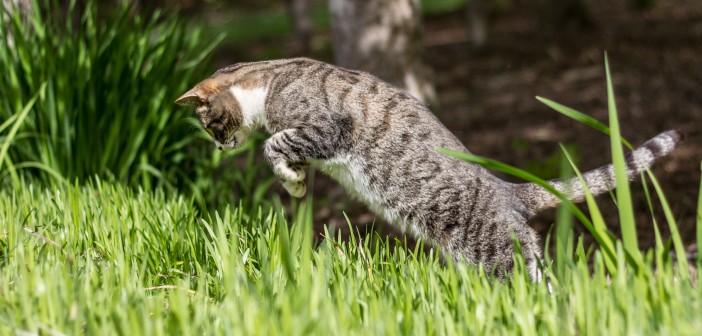(Photo credit Holly Bourne, used under CC BY-NC-ND 2.0)
CHICAGO, IL: Chicago Mayor Rahm Emanuel and Alderman Carlos Ramirez-Rosa (35) recently introduced a proposal to fine Chicago residents $50 to $500 if they do not pick up their dog’s waste in their own backyard. The contention is that the dog feces is causing or contributing to Chicago’s burgeoning rat population. However, pet expert Steve Dale, Certified Animal Behavior Consultant and Vice President of the Tree House Humane Society Board of Directors, pet book author, and WGN radio host believes that while well intentioned, even if the law could be enforced, it would not impact the rat population. The availability of food is what drives a rat’s behavior, and the abundant food sources provided in a city such as Chicago most certainly whet a rat’s appetite long before they turn to dog feces.
“I want to be clear; I am absolutely FOR people picking up after their dogs on their own property and anywhere their dog deposits,” said Dale. “Dog waste can pollute our waterways, may carry harmful bacteria, smells, and let’s face it, isn’t fun to step in. Picking up after your dog is responsible pet guardianship. But are we going to make Chicago police the poop police?”
Far more of an issue than dog feces are the thousands of front load trash bins found behind almost every restaurant, apartment building and business, which provide rats with a veritable smorgasbord. Additionally, rats can easily chew through the plastic lids on trash cans used by many homeowners including the city’s blue bins used for Chicago’s recycling program.
While rats are not picky eaters, dog feces is not at the top of their list of preferred food sources – these rodents favor eating items such as:
- Bird seed
- Bread (tossed out for birds, pigeons, and squirrels)
- Berries (dropped from trees, especially in the spring and summer)
- Pet food left outside (rats love dog food)
- Leftover food items (found in homeowners’ garbage and restaurant trash)
- Their own feces, which rats will eat for nutrition
Even if every piece of dog excrement was removed, rats would still thrive in Chicago. However, Tree House Humane Society’s Cats at Work offers a proven, humane, long-term, “green,” alternative solution to the city’s growing rat issue. The project relocates feral or community cats to new territories where their hunting instincts and mere presence results in reduced numbers of rats.
Since Cats at Work’s inception in 2012, Tree House Humane Society has successfully placed more than 400 “working cats” in private backyards, barns, on condo building properties and in factories and warehouses where clients have reported an almost immediate end to their rodent problem soon after welcoming their cats.
“We struggled with rats for many years at our home. We did everything; called the city, put down poison and gassed their holes. Nothing worked. We would see rats all the time. One night, a rat ran over my husband’s foot, and we decided that we’d had enough. We became caretakers of one of Tree House’s feral cat colonies and within a few weeks the rats disappeared. It’s fabulous. We love our colony cats,” said Anne E. Beall, Ph.D., Tree House Community Cats Colony Caretaker and author of “Community Cats – A Journey Into the Life of Feral Cats.”
Cats at Work also provides a humane solution for displaced, feral community cats giving them a safe and secure location where they can live out the rest of their lives. The cats are spayed or neutered, treated for parasites, vaccinated for rabies, ear-tipped and microchipped before relocation. Volunteer caretakers humanely manage the cats for the entirety of their lives with ongoing support from Tree House as mandated by Cook County’s 2007 Managed Care of Feral Cats Ordinance.
Common methods used to control rats such as poison and traps are ineffective, short-term solutions. Additionally, rat poison is dangerous to children, pets and the environment. Tree House’s Cats at Work, an offshoot of Tree House Community Cats, provides a better solution.
FOR MORE INFORMATION ABOUT TREE HOUSE’S CATS AT WORK PROJECT: 773-784-5488 ext. 234 or TNR@TreeHouseAnimals.org.





